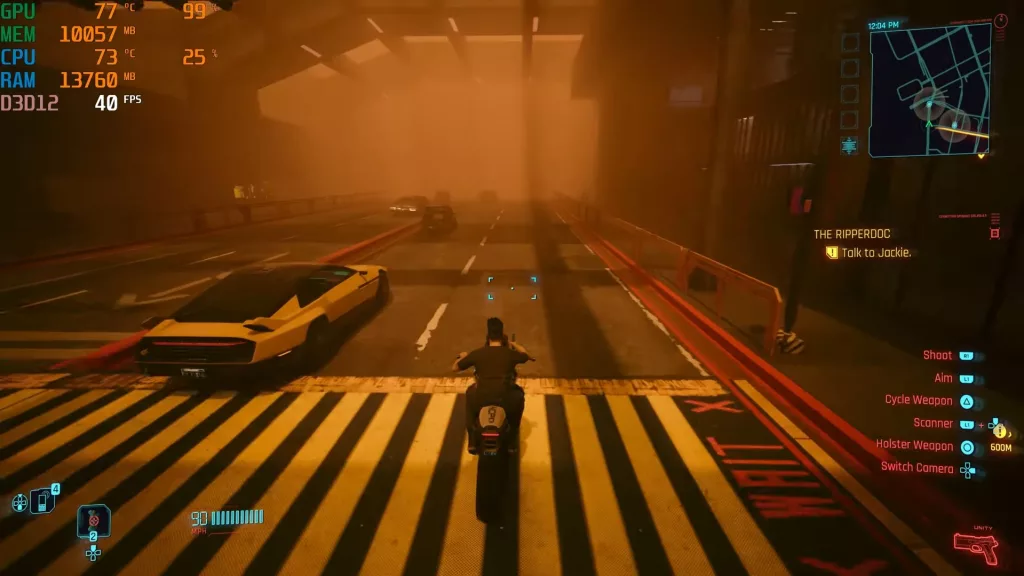RPGs comprise some of the more beloved video games of all time, boasting tens of hours, if not hundreds of hours, of playing time. Add in the memories they can add when they’re played, and it’s easy to see why so many people keep returning to this quintessential gaming genre.
What many gamers don’t tend to realize is how much time and effort is put into making them. A great RPG, like The Witcher 3, takes thousands of labor hours to craft, with hundreds of employees working on them.
Then there are the technologies in making RPGs, with there being more than a few of these being used. It’s worth taking a look at what some of the more popular technologies are in the development of these games.
Technologies that make RPGs
Given below are the seven most important technologies used in creating the majority of RPG games for all platforms and devices.
1. Graphic design software
One of the more obvious technologies used in making RPGs is graphic design software. It’s how developers make the games look the way they do. There are countless programs developers can use to do this, with each offering its pros and cons. Without them, gamers don’t have much to look at.
The software is used for more than just making cutscenes and characters, though. It’s also used for text and other minor areas, making it one of the most important bits of software developers need to use when making any kind of game.
2. Random Number Generators

Random encounters are becoming increasingly engrained in RPGs, with The Elder Scrolls V: Skyrim being one of the more obvious titles to use them. Even Fallout 4 had dozens of potential encounters that players could come across when playing. These aren’t possible without random number generators.
While these have come under fire for their use in loot boxes and similar mechanics, they can still be an integral part of making an RPG. They’re used to affect algorithms and generate random encounters players can come up against. They help add some extra charm and uniqueness when players are going through the game.
3. Programming languages

Coding is an integral part of the video game development process. That means perfecting and using programming languages to create them. While some tools make this a lot easier, developers still need to have a working knowledge of and ability to code. It’s too important for them not to.
As gamers might think, this is often one of the more complicated technologies and areas to perfect with RPGs. Even one misspelling or error could have massive implications. Just ask some of the more recent Alien games to see how much of an impact they could end up having.
4. Artificial intelligence
Artificial intelligence (AI) mightn’t be one of the more obvious technologies used in making RPGs, but it’s becoming increasingly more popular. RPGs might even be where the technology is put to the most use, but it can also be found in a few other genres.
When it comes to roleplaying games, you’ll see it put into practice in a few ways. The most notable of these focus on NPCs and the series of commands they follow. In decades past, these were all pre-programmed, but AI is making them much smarter.
They can respond to the world around them much better, which makes the RPG much more immersive.
5. Drones
Drones might be one of the more surprising technologies used in making RPGs, but they can be put to quite a few uses. The most notable of these comes into play when developers are coming up with the terrain for their game. They can use drones to scan and photograph real-world terrains.
The developers can then use this as inspiration for the world they create in-game. With a bit of creativity and ingenuity, they’ll have a fantasy world before they even know it. At a minimum, they can put together a few terrains to make something brand-new.
Dr. Drone (drdrone.ca) is a great option when developers need to use drones during their RPG development.
6. Game engines
One of the more obvious technologies used in making RPGs is the engine used to power it. As the name suggests, it’s relatively similar to a car engine, in that it’s what drives everything forward during the development.
They’re the system used to create everything and are responsible for making the visuals and other areas look and feel amazing. They’re the backbone of game development and are involved in almost every part of the development cycle.
From graphics to mechanics, there’s practically nothing they’re not involved in. Unreal Engine and the Creation Engine are some of the more well-known of these, but they’re expensive and usually only available to larger studios.
7. Audio engines
RPGs – and video games in general – are looking increasingly nicer. But that isn’t the only area that’s progressed in leaps and bounds in the past few decades. While it often doesn’t get as much attention as it should, audio has also seen quite a few impressive changes in the past while.
At this point, designing the audio for a game is impressive and borderline mind-blowing. Audio engines are a vital part of this, as they’re needed to put everything together and make sure it all sounds amazing. Think of it as a game engine but focused solely on how the game sounds.
It lets developers mix background noise, music, and dialogue while making sure it’s easily understandable and sounds amazing.
Wrapping up
There are quite a few technologies in making RPGs, with some being more commonly used than others. All of the above are widely used across the industry, and that isn’t just the case for RPGs. They’re used in a range of other genres, too.
Chances are, they’ve been used in most gamers’ favorite titles, and more than a few they mightn’t have liked, too. While developing an RPG still takes a lot of time and effort, game engines, programming languages, and other technologies help make it a lot easier.





